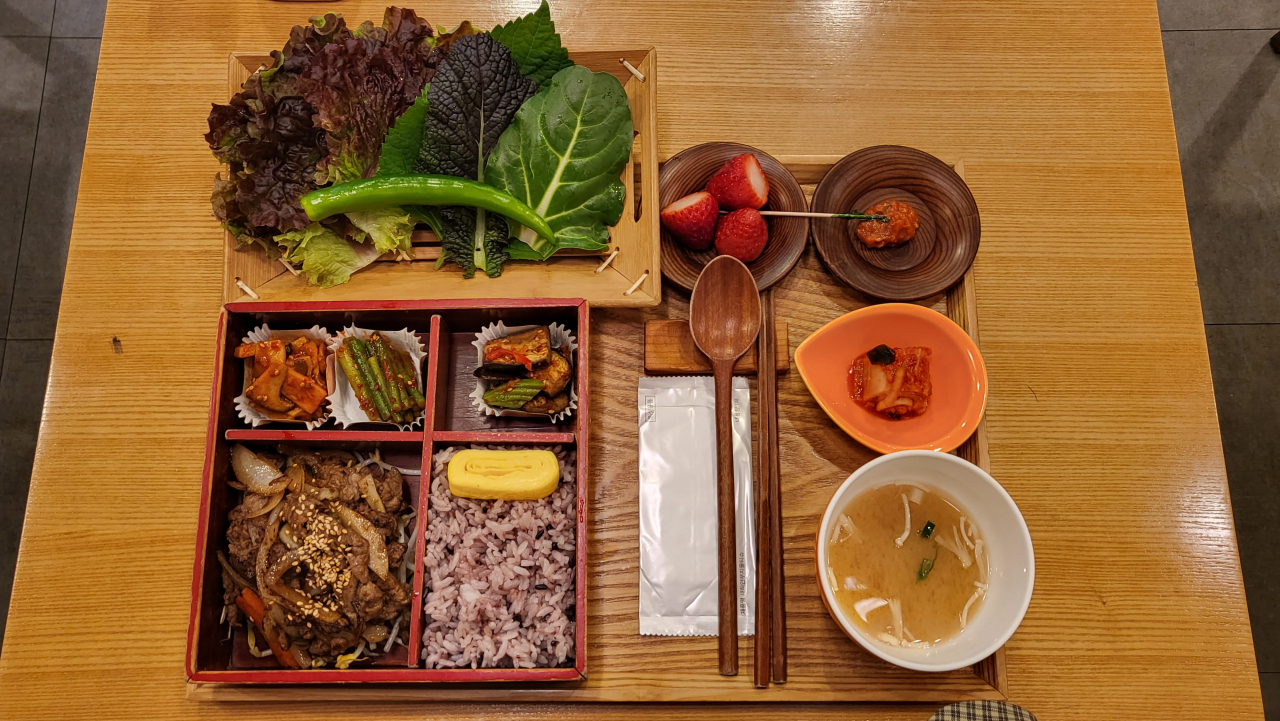
It's a whole meal presented in a box with little compartments -- imagine a jewelry box. A dosirak can be anything -- from a humble lunchbox that is eaten at one's desk to a picnic lunch filled with gimbap and other goodies. It can even be elevated to a gourmet meal with morsels of epicurean delights filling up the various compartments.
While records of dosirak go back to the Silla Kingdom (57-676), they became more popular during the period of rapid economic growth beginning in the 1960s.
Before school and office cafeterias were widespread, homemade dosirak packed in metal or plastic containers with compartments were a must.
A typical lunch dosirak would consist of rice with three to four banchan or side dishes. Sometimes hot soup was brought in a separate thermos container.
Today, dosirak do not have to be a homemade affair only. There are numerous vendors that specialize in dosirak to-go that are convenient as well as healthy.
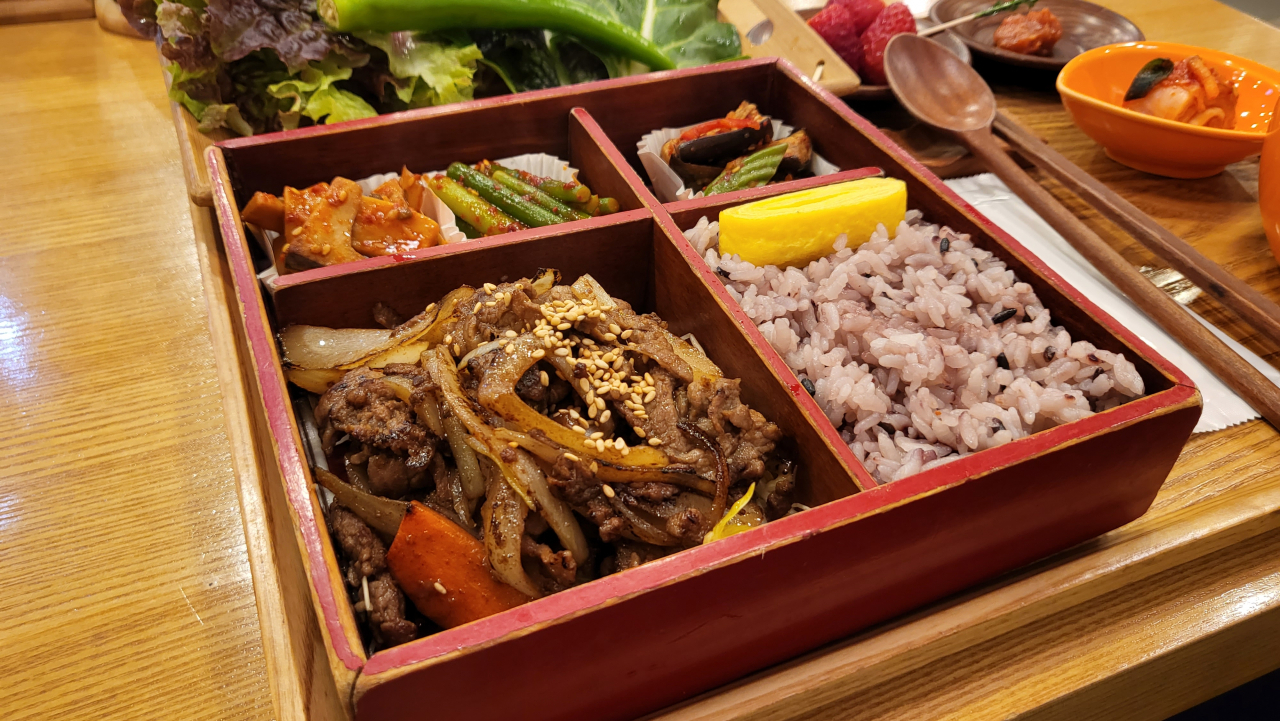
Jo PD Kitchen
Renowned music producer and rapper Cho PD, or Cho Joong-hoon, was inspired to open Jo PD Kitchen in Yeouido after years of quick bites during breaks, often eating unhealthy, excessively seasoned dosirak.
Dosirak here are "low calorie, low salt, low fat," using only homemade sauces and seasonings.
Instead of salt, ganjang (soy sauce) and doenjang (fermented soy bean paste) are used to enhance the flavors of the main ingredients.
The doenjang beef bulgogi dosirak and grilled salmon steak dosirak are two favorites among customers.
While they both have the same four side dishes, the doenjang beef bulgogi dosirak comes with leafy green vegetables for making ssam, or bite-size wraps.
The wooden dosirak boxes are crafted by lacquer master Lee Hyeong-man's studio using maple wood, according to the manager.
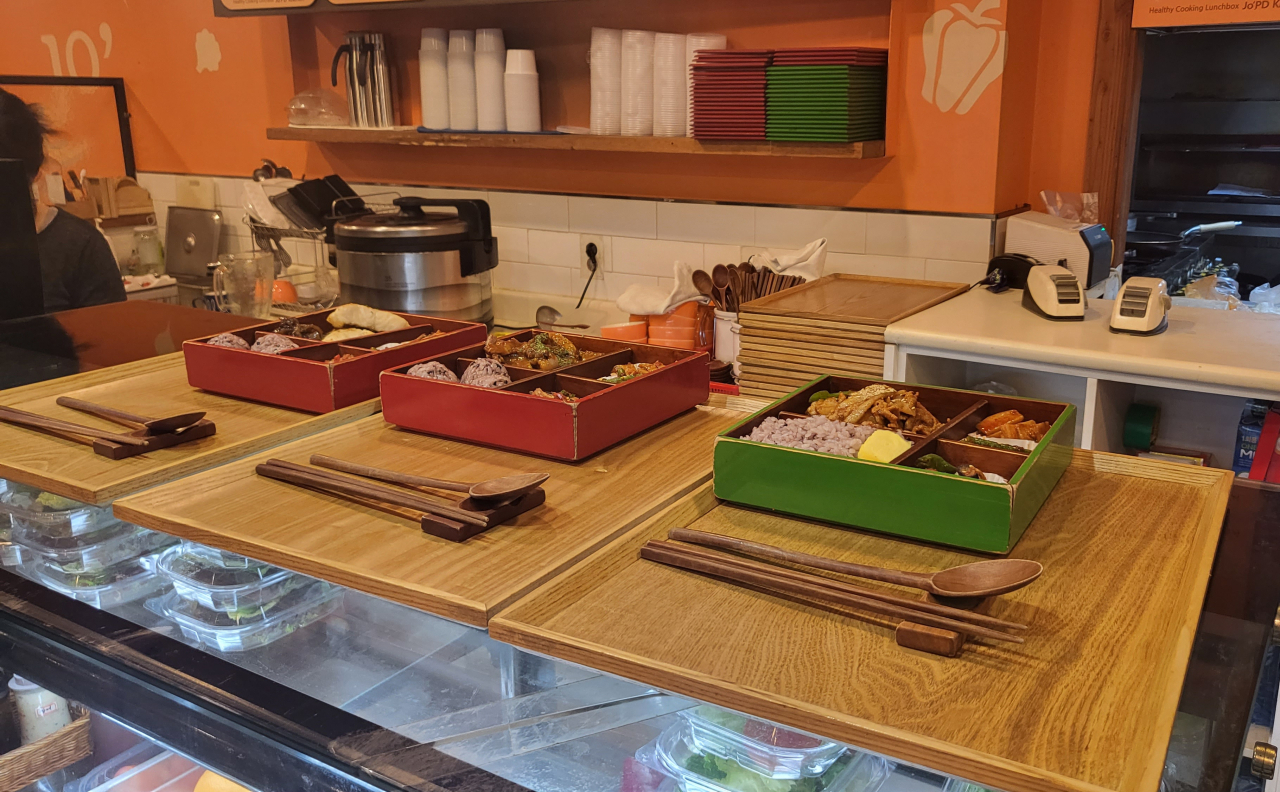
The mild and even bland flavors may need some getting used to. "We never use frozen meat, and all our dried fish banchan come from Noryangjin Fish Market, which we visit every week," the manager told The Korea Herald.
Taking pride in offering healthy options, deep fried ingredients are conspicuously absent from the dosirak here.
Jo PD Kitchen is open Monday through Friday in Yeouido.
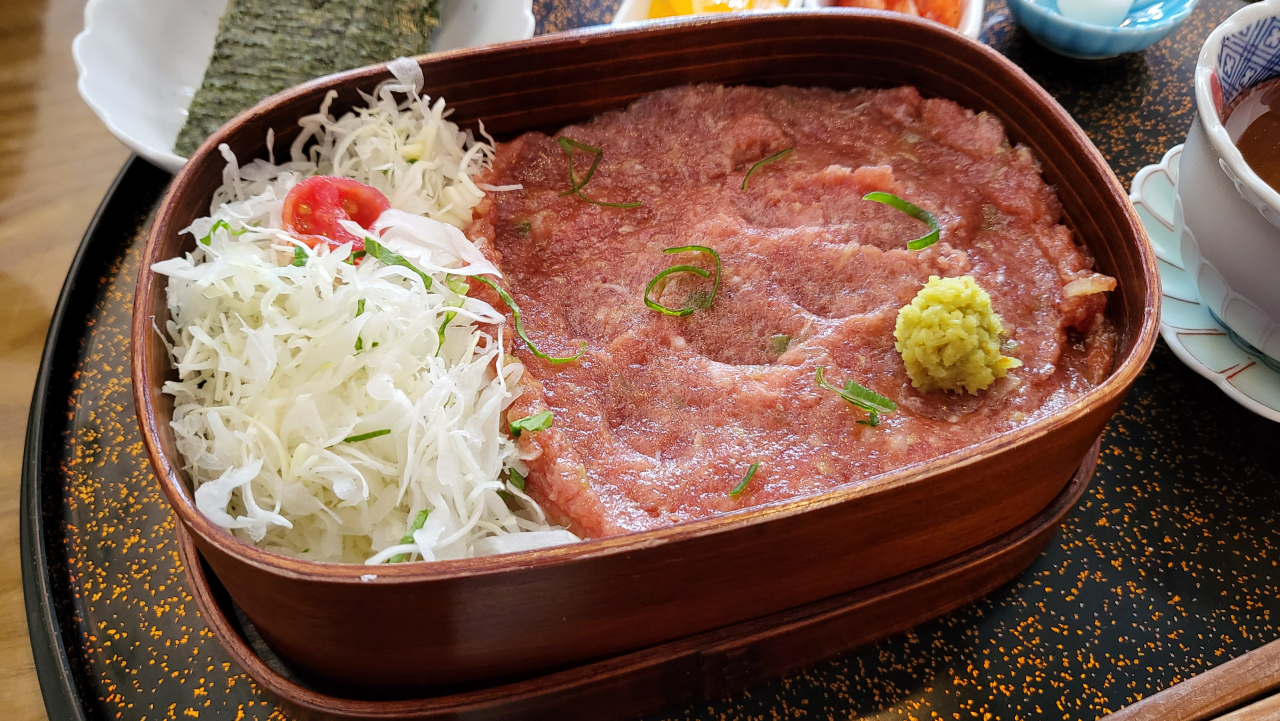
Seopsikdang
Located in the hip Mangwon neighborhood, amid diverse eateries, secondhand stores and vintage shops, Seopsikdang specializes in bento, the Japanese-style dosirak.
Long lines form on weekends at the restaurant, which serves bento with raw fish and grilled meat ingredients.
Owner-chef Kim Dae-seop who majored in culinary arts, worked at several restaurants including a five-star hotel restaurant before opening his own place.
Kim became immersed in Japanese cuisine in the early years of his career and envisioned opening a cozy eatery where people could drop by and be served the best ingredients typically reserved for fine dining restaurants.
Seopsikdang's signature bento is the negitoro bento, rice covered with generous amount of minced raw tuna with a sprinkling of chopped green onions and topped with a teaspoon of wasabi.
Gim (dried laver), danmuji (pickled radish), kimchi and a scoop of milk jelly for dessert, are delicately placed in separate containers and set together on a half-moon shaped plate, along with miso soup.
"Since 2019, we have served various type of seafood or meat-based bento in the form of deopbap (rice with toppings), so that guests can feel as if they are out at a picnic, but in a comfortable and warm setting," Kim said.
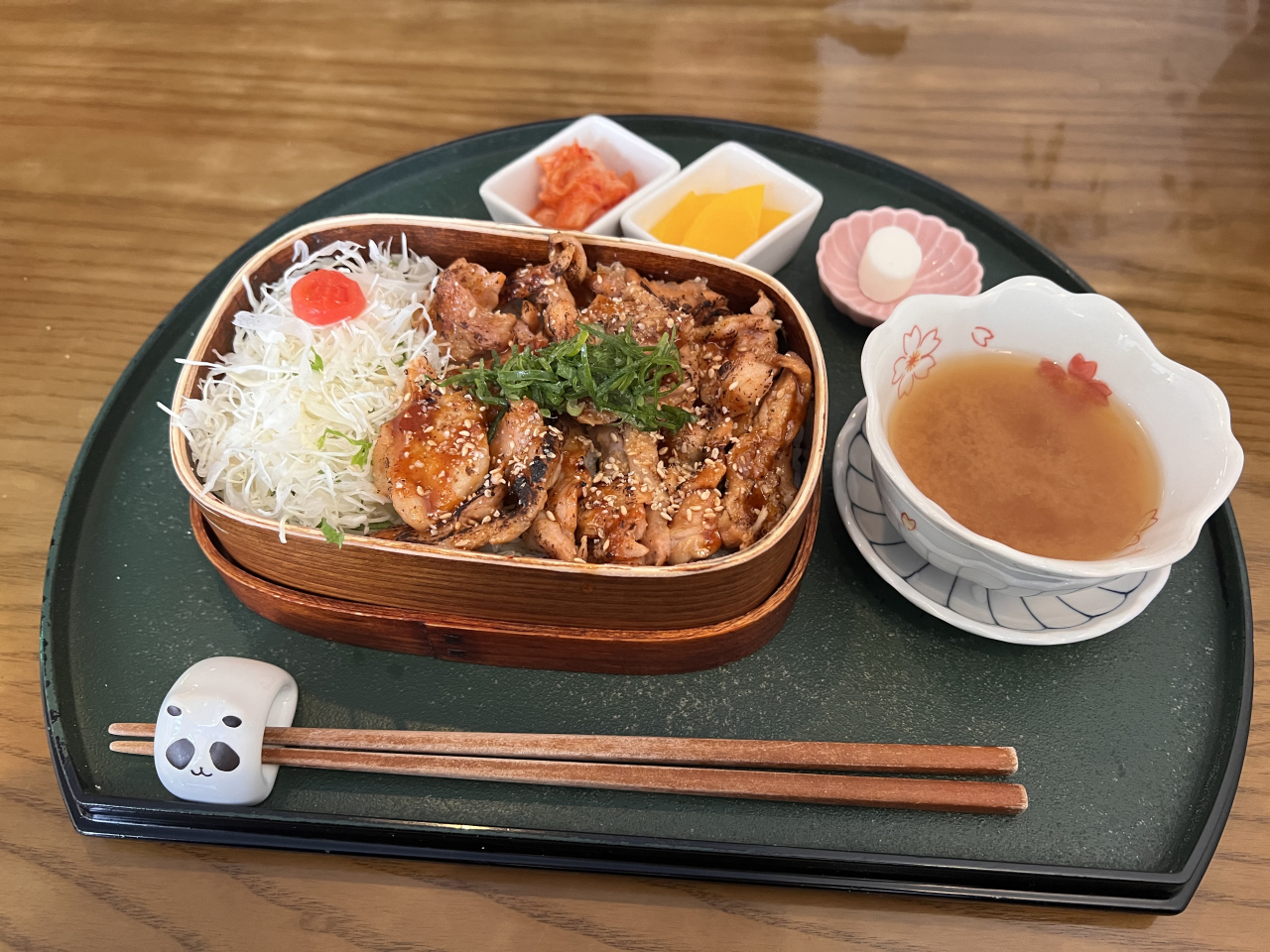
The seseri bento, rice topped with sweet and spicy sous vide chicken, is a meat option.
The negitoro bento costs 15,000 won, and the seseri bento, 14,000 won. The restaurant is open Thursday to Sunday in Mangwon.
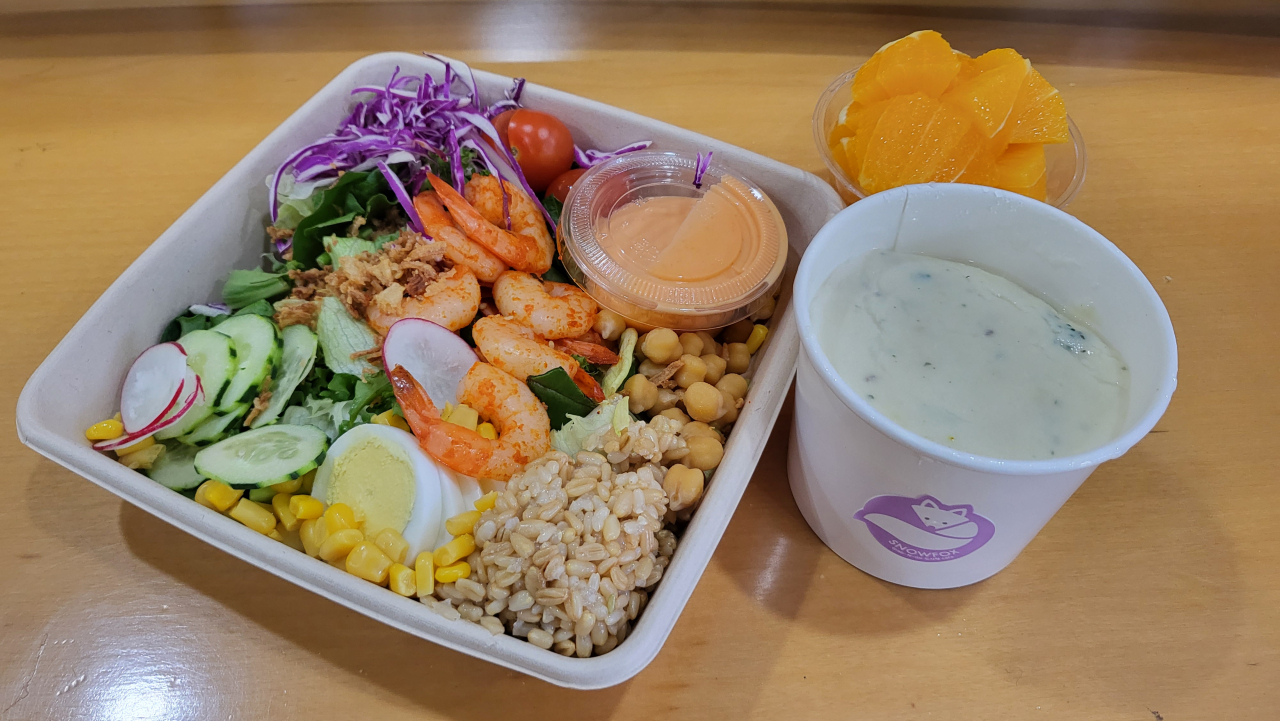
Snowfox Grab-N-Go Cafe
Snowfox Grab-N-Go Cafe is a global dosirak cafe franchise with over 4,800 stores around the world.
The store is the brainchild of a Korean American entrepreneur from Houston, Texas.
Gimbap and grab-and-go sushi were a relatively new concept in Texas at the time and soon became a hit there.
There are several Snowfox Grab-N-Go Cafe stores in Seoul, including in Gwanghwamun, Magok, Gangnam and Jamsil, which sell more than 30 types of grab-and-go items made daily and are neatly on display.
The salad dosirak series -- spicy shrimp, chicken breast and tofu -- is one of the most popular items. The salad dressings are freshly made daily on site.
For Korean menu options, the rice bowl with stir-fried pork and kimchi, and the mildly spicy chicken rice bowl are available.
For group orders, visitors can build their own dosirak according to their preferences.
Most Snowfox Grab-N-Go restaurants are open on weekdays from 7:30 a.m. to 9 p.m. Check the company's official website for each branch's operating hours.





